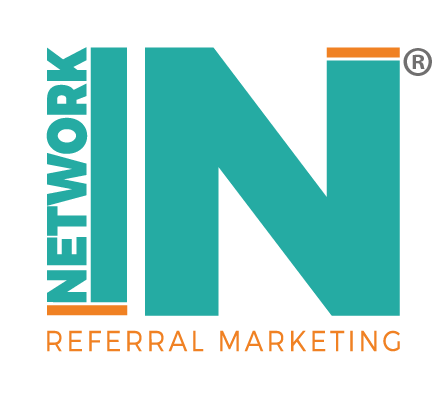
24 Feb Hacking Your Brain’s Happiness Chemicals – Tapping into the Power of Your Own ‘Happiness Tree’
After the last two years, it’s no wonder that there is such a huge focus on nurturing and rebuilding our physical and mental wellbeing. In this blog, Mike Holland, an advocate atNetworkIN Team Congleton, shares his thoughts on Hacking Your Brain’s Happiness Chemicals.
As a health and wellbeing professional, my main purpose is to help people look after themselves physically, mentally, emotionally, and spiritually.
However, you don’t need to adopt a life-changing new regime or invest in learning new practices.
Researchers have identified some simple ways to help us to tap into the power of our own brain and increase the flow of the neurochemicals that are responsible for our happiness – essentially, tapping into the power of our own ‘happiness tree’.
Dopamine, Serotonin, Oxytocin, and Endorphins are the four neurochemicals that are responsible for our happiness.
Many situations can trigger these neurotransmitters naturally, but instead of being in the passive ‘passenger seat’, there are ways that we can intentionally increase the production and flow of them.
It’s been shown that being in a positive mental and emotional state of mind has a significant impact on our motivation, productivity, and wellbeing.
Here are some simple ways to hack into your own ‘happiness tree’.
Dopamine for Reward:
Dopamine is the neurochemical that boosts the motivation for us to take action toward our goals and gives us that surge of pleasure when we achieve them.
Procrastination, self-doubt, and lack of enthusiasm are all linked with low levels of dopamine.
Studies on rats showed those with low levels of dopamine always opted for an easier option, and less reward/food; those with higher levels of dopamine exerted the effort needed to receive double the amount of food.
- Complete a task.
- Do a self-care activity.
- Eat a food you like.
- Celebrate a personal success or win. Not just the big ones but even the smallest success or achievement.
- Avoid the ‘dopamine hangover’ when you slump after a massive high. Create new goals before achieving your current one. That ensures a consistent pattern for experiencing the dopamine hit.
Oxytocin for Love:
Often referred to as “the cuddle hormone”, the release of oxytocin creates intimacy, trust, and strengthens relationships.
It’s released by men and women during orgasm, and by mothers during childbirth and breastfeeding.
Oxytocin is the glue that binds together healthy relationships.
A simple way to keep oxytocin flowing is to give someone a hug.
Inter-personal touch not only raises oxytocin, but reduces cardiovascular stress and improves the immune system.
Not being allowed the pleasure of this simple act over the last two years is perhaps one of the reasons why so many of us have been so adversely affected by the lockdown restrictions imposed during the Covid Pandemic.
So, still being ‘safety sensible’, rather than just shaking hands, if possible, go for the hug. Other simple acts that will increase the flow of oxytocin:
- Play with or stroke a dog.
- Hold hands with or hug someone you care for.
- Pay someone a compliment.
- Give someone a gift.
- Look at a picture of a smiling baby.
Seratonin for Improved Mood:
Serotonin flows when you feel significant or important.
Loneliness and depression are present when serotonin is absent.
Being part of a club or community organisation for example that promotes a feeling of belonging or being part of a culture with a ‘community’ feeling will increase serotonin release.
Most antidepressants focus on the production of serotonin.
Recalling past successes allows our brain to re-live the experience.
The brain has trouble telling the difference between what is real and what is imagined, so it produces serotonin in both cases.
Gratitude practices such as keeping a ‘gratitude journal’ are also a great way to increase the flow of serotonin. They remind us of our achievements and provide mental images the good things we’ve experienced.
If you need a serotonin boost during a stressful day, take a few moments to recall past achievements and successes. Other ways to increase the release of serotonin:
- Practice Mindfulness or Meditate.
- Exercise – walk cycle or swim.
- Get out in nature.
- Be in sunlight – winter, spring, summer, or autumn. Not too much to be unhealthy, but during regular exposure to the sun for twenty minutes, your skin absorbs UV rays which promotes Vitamin-D and serotonin production.
Endorphin to Relieve Discomfort or Pain:
Endorphins are released in response to pain and stress, and helps to relieve stress and anxiety.
The boosting “second wind” and euphoric “runners high” when running are a result of endorphins.
Similar to morphine, the endorphin neurochemical acts as an analgesic and sedative, diminishing our perception of pain.
Along with exercise, laughter is one of the easiest ways to induce endorphin release.
Even the anticipation and expectation of laugher, for example looking forward to watching a comedy show on the television, will increase levels of endorphins.
Taking your sense of humour to work with you, and where appropriate, forwarding that funny email, and finding things to laugh at during your working day is a great way to keep your endorphins flowing.
Aromatherapies can also help boost the release of endorphins. The smell of vanilla and lavender have been linked with the production of endorphins.
Some research has shown that dark chocolate and spicy foods will cause your brain to release endorphins.
So, keep some scented oils and dark chocolate at your desk for a quick endorphin boost. Other ways to increase the release of endorphins:
- Laugh often.
- Watch comedy.
- Eat dark chocolate or something spicy.
- Exercise.
So, if you or someone you know would like to learn about more ways to help you to hack your body’s ‘happiness tree’ and increase the production and release of your happiness neurochemicals, then contact me for an informal no-obligation chat.
I’m Mike Holland & my company is Mind Being You.
I’m a Clinical Hypnotherapist, NLP Trainer & Business Consultant & a Mindfulness Meditation Teacher.


Sorry, the comment form is closed at this time.